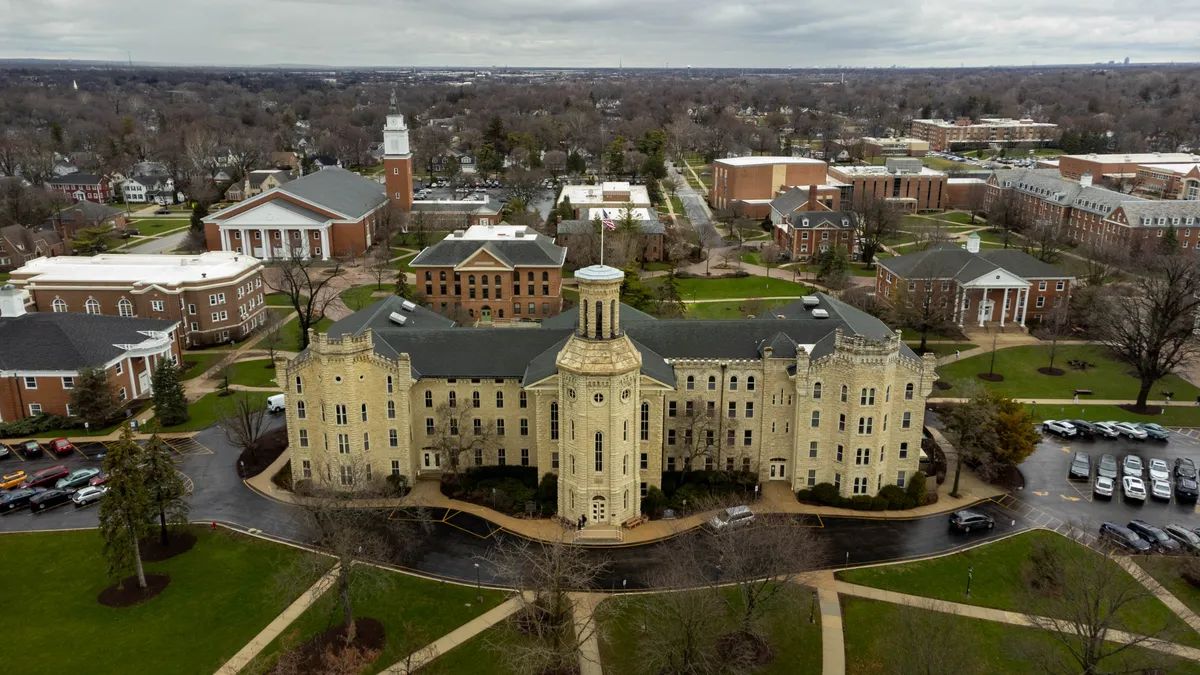Dive Brief:
- Wheaton College will remove a former college president’s name from its campus library to redress the Illinois institution’s past racist policies, according to a 122-page historical review of the college's race relations.
- The library will no longer be named after the late James Oliver Buswell Jr. due to his “de facto policy of denying qualified Black applicants admission” to the college in the 1930s, the report said. It announced the building will now simply be called “the Library.”
- The Christian institution will also assess its level of support for students of color, and continue to hold discussions with the Lakota people over the college’s ownership of the Black Hills Science Station property in South Dakota.
Dive Insight:
Wheaton is one of many colleges confronting racist periods in their histories, though these reviews have had mixed results. In 2022, for instance, Harvard University published a report detailing how slavery shaped the institution and pledged $100 million to address those ties, drawing a lukewarm response from Black scholars.
At Wheaton, the administration assembled a task force in 2021 that included trustees, faculty and students to learn more about its history of race relations through 2000 and how those events have impacted the present.
Although the college was founded by abolitionists in 1860, their principles were abandoned several decades later, according to the report. The task force members wrote that they “lament the embrace of attitudes, beliefs, and actions that created an inhospitable and sometimes hostile campus environment for persons of color” during the turn of the 20th century.
That includes the college’s prior concerns over interracial relationships and instances of blackface in college publications. The task force also called out prior college leaders for failing to speak out against racial injustice and not doing enough to advance diversity on campus.
Along with stripping Buswell’s name from its library, Wheaton will call on its archivists and historians to create a display inside the building to document the reasons for the removal. The exhibit will put the college’s discriminatory practices into historical context, as well as “fairly document President Buswell’s contributions as well as his shortcomings,” the report said.
The task force also addressed that some Lakota Sioux members say the entire Black Hills region of South Dakota, where Wheaton College Science Station is located, was stolen from them by the federal government.
A 1980 U.S. Supreme Court ruling acknowledged the land was unfairly taken and awarded a $100 million reparation payment.
“To this day, however, the Lakota people have refused to accept the settlement, considering it as an insufficient remedy and still lay claim to the land itself,” the report stated.
The task members said ongoing discussions with the Lakota people should seek to understand what they would consider “a just remedy.” The school should also find ways to partner with them at the science station, including through programming and commemorative signage, the report said.














